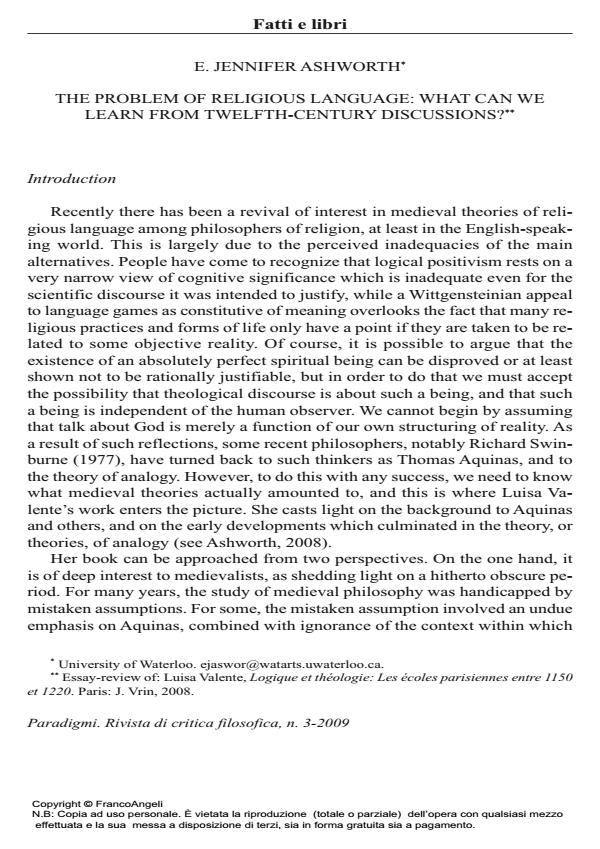The problem of Religious Language: What can we Learn from Twelfthcentury Discussions?
Journal title PARADIGMI
Author/s E. Jennifer Ashworth
Publishing Year 2009 Issue 2009/3
Language English Pages 12 P. 141-152 File size 79 KB
DOI 10.3280/PARA2009-003010
DOI is like a bar code for intellectual property: to have more infomation
click here
Below, you can see the article first page
If you want to buy this article in PDF format, you can do it, following the instructions to buy download credits

FrancoAngeli is member of Publishers International Linking Association, Inc (PILA), a not-for-profit association which run the CrossRef service enabling links to and from online scholarly content.
<em>The Problem of Religious Language: What can we Learn from Twelfth-century Discussions?</em> - This paper discusses a recent book by Luisa Valente, Logique et théologie: Les écoles parisiennes entre 1150 et 1220, in which she gives a rich account of how twelfth and early thirteenth-century Parisian theologians attempted to solve the problems of religious language by appeal to the notions of propriety and translatio. Words had a proper signification when used in accordance with their original meaning, whereas translatio involved a semantic shift from the proper sense to a new extended sense. However, words used in this way were equivocal, and towards the end of the period theologians tried to save the univocity of at least some of the words we apply to both God and creatures. Their efforts form the background to the new thirteenth-century theory of analogy, a theory to which some contemporary philosophers of religion have returned. <br/><br/> Key words: Analogy, Equivocation, Religious language, Signification, Translatio, Univocation.
E. Jennifer Ashworth, The problem of Religious Language: What can we Learn from Twelfthcentury Discussions? in "PARADIGMI" 3/2009, pp 141-152, DOI: 10.3280/PARA2009-003010